- AED
- AFN
- ALL
- AMD
- ANG
- AUD
- AWG
- AZN
- BAM
- BBD
- BDT
- BIF
- BND
- BOB
- BSD
- BWP
- BZD
- CAD
- CDF
- CHF
- CNY
- CRC
- CVE
- CZK
- DJF
- DKK
- DOP
- DZD
- EGP
- ETB
- EUR
- FJD
- FKP
- GBP
- GMD
- GNF
- GTQ
- GYD
- HKD
- HNL
- HUF
- IDR
- ILS
- INR
- ISK
- JMD
- JPY
- KES
- KGS
- KHR
- KMF
- KRW
- KYD
- KZT
- LAK
- LBP
- LKR
- MAD
- MDL
- MKD
- MMK
- MNT
- MOP
- MUR
- MVR
- MWK
- MYR
- NGN
- NIO
- NPR
- NZD
- PEN
- PGK
- PHP
- PKR
- PLN
- PYG
- QAR
- RON
- RSD
- RWF
- SAR
- SBD
- SEK
- SGD
- SHP
- SLL
- STD
- THB
- TJS
- TOP
- TTD
- TWD
- TZS
- UAH
- UGX
- USD
- UYU
- UZS
- VND
- VUV
- WST
- XAF
- XCD
- XOF
- XPF
- YER
Why Do Cats Pee in the House?
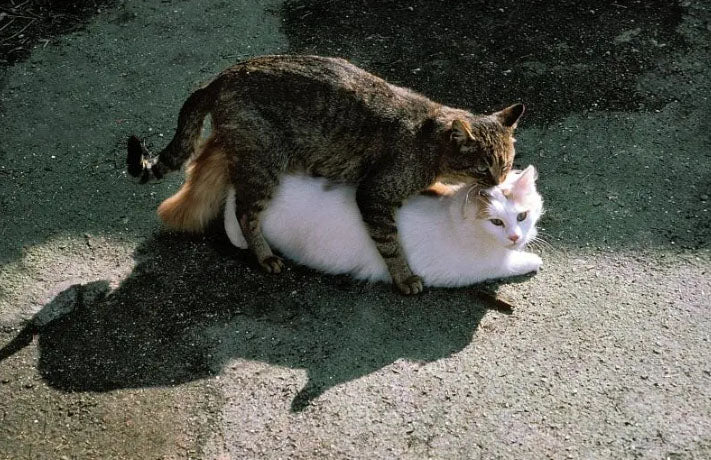
We've probably all been there. After a long day, you take a refreshing shower and look forward to a good night's sleep to recover from the day's fatigue. But as soon as you cuddle up with your pillow and bedding, an overpowering smell fills your nose. And when you fold your laundry and notice a sudden wetness, you know it's your cat again. If your cat doesn't pee in the litter box, be aware that it's a sign that something goes wrong with your furry cat. Cats may pee outside the litter box due to environmental, behavioral or medical issues.
Possible Causes of the Cat Peeing in the House
Environment
Cats tend to urinate in places where they feel safe and secure. If your cat senses that the surrounding environment is not safe enough, it may choose to urinate on items that have your scent, such as pillows or quilts. This is because your cat believes that you can provide it with a sense of security. It is important to note that cats can easily get stressed when placed in an unfamiliar environment. If the stress is too much for the cat to handle, it can lead to physical discomfort and urinary problems, such as urinary blockage and uncontrolled urination.
Heat Period
Cats exhibit urine spraying behavior as a way to communicate their availability for mating. During heat, male cats feel a strong sense of territoriality and mark their territory by spraying urine in various places around the room. Some female cats also exhibit this behavior.
It's important to differentiate between spray urination and peeing in cats. You can tell the two by observing the cat's posture and the surface on which they pee or spray. When a cat urinates outside the litter box, they usually squat down and leave a large amount of urine on a horizontal surface. On the other hand, when a cat sprays urine, they stand upright and release a small amount of urine on a vertical surface.
If you notice that your cat is in heat, you can prepare him for a spay or neuter surgery after the heat period. Once a cat has developed a habit of urinating in the house, even after being neutered, it may be challenging to completely correct such behavior. However, spaying and neutering your cats can significantly reduce the likelihood of such behavior. Therefore, it is highly recommended that you have your cats spayed or neutered in an appropriate period.
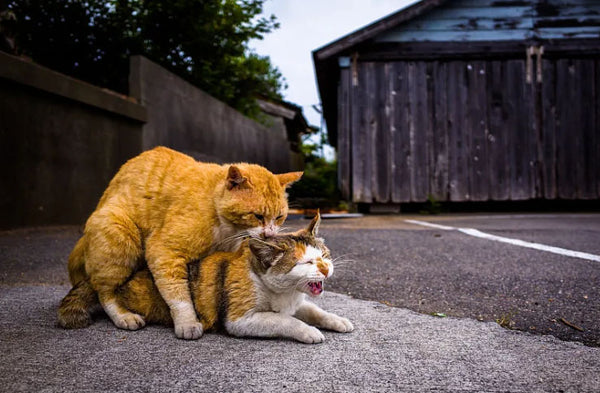
Diseases of Urinary System
Urinary diseases are a common cause of concern for cats. Conditions such as cystitis, urethritis, bladder stones, and kidney disease can lead to pain, difficulty holding urine, and uncontrolled urination. If you notice that your cat is frequently going to the litter box but not having any excreta, it may be suffering from a urinary disease. In such a case, it is imperative to take your pet to the nearest veterinary hospital without delay.
Litter Box
- Many cat owners now opt for semi-enclosed or enclosed litter boxes, which can greatly reduce the smell of cat waste. However, these litter boxes are not always cat-friendly.
- If you have read this far, I kindly request you to scoop the waste from the litter box right now. When was the last time you gave the litter box a thorough cleaning? The owner seems to be neglecting the cleaning duties, as the litter has not been replaced for a long time and the litter box has not been cleaned either. This situation can make it unpleasant for the cat to use the litter box.
- The litter box is too small for the cat to turn around. Your cat dislikes the location and style of the litter box, so it may choose a more suitable place to solve its physiological problem.
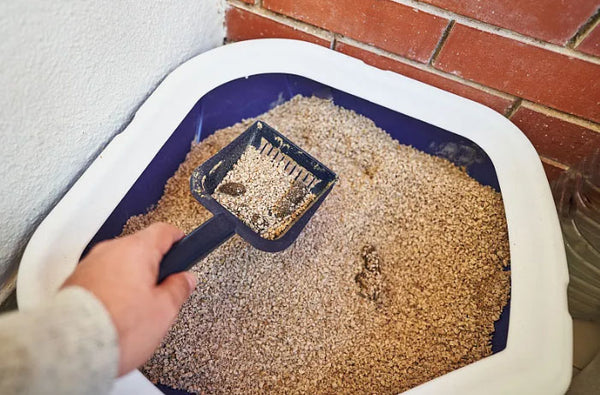
Create a Litter Box Set up That Your Cat Will Love
It is recommended that cat owners replace their cat's litter box with a suitable size that offers a good view and is located in a relatively quiet and easily accessible area. Additionally, it is important to regularly clean the litter box, replace an attractive litter, and keep it clean.
Types of Cat Litter
Cats have an instinctive habit of being cautious and burying their feces and urine in the sand after excretion. Today, there are several types of cat litter available in the market, such as mineral sand, bentonite cat litter, tofu cat litter, crystal cat litter, pine cat litter, and paper litter. These litters also come in various fragrances like original, lemon, and milk. However, sometimes cats get confused by the material or smell of the litter and may not identify it as their toilet. This confusion can lead to cats urinating anywhere they want instead of the litter box. Have a try unscented, fine-grained, clumping, or scoopable litter because it's the most like sand.
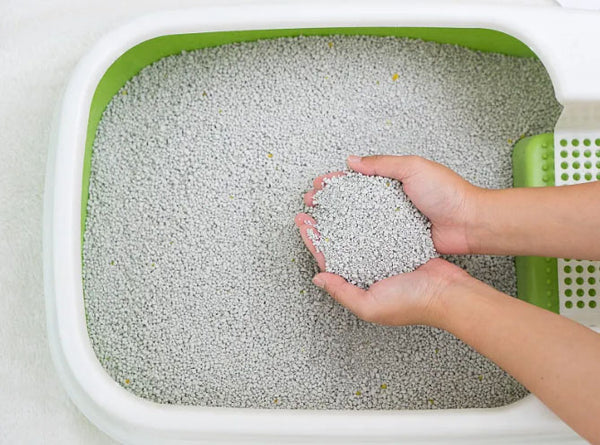
Scent
Cats have a strong sense of smell and choose their toilet site accordingly. If they have defecated in a certain place and the owner hasn't cleaned it thoroughly, they will likely use that spot again. To prevent this, it is recommended to use an effective cleaning cleaner to remove any residual urine stains on furniture and clothing.
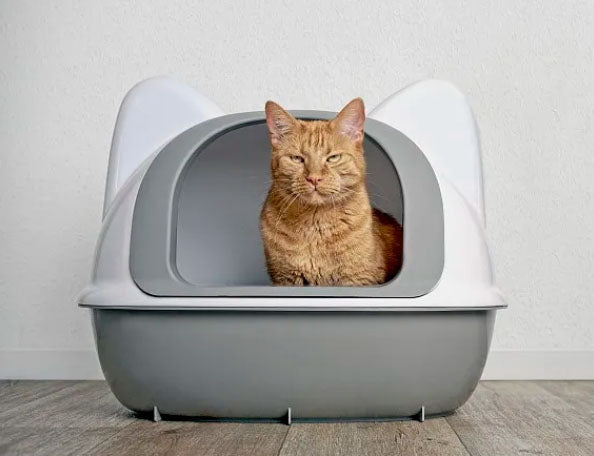
No comments





0 comments